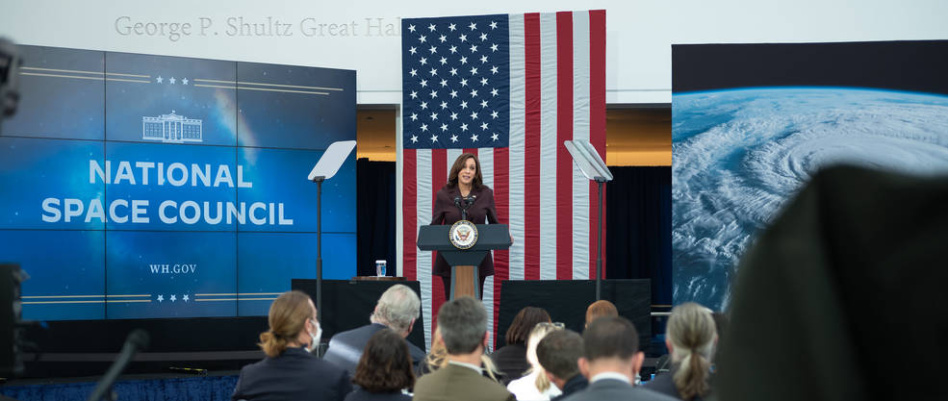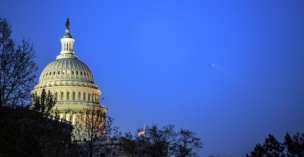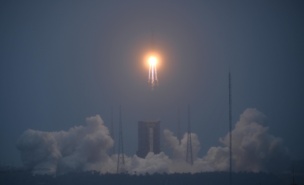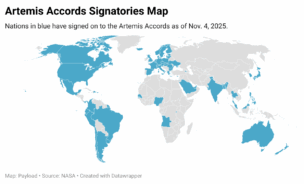As Vice President Kamala Harris prepares to accept the Democratic nomination this week in Chicago, here’s our look at what space policy priorities might dominate a potential Harris administration.
Harris’ past: Though the vice president did not do much public work on space before joining President Joe Biden’s ticket, she has overseen the debate of two major space policy issues as chair of the National Space Council:
- The release of the administration’s framework to ensure the government is ready to oversee novel space missions not covered by existing regulations.
- The US moratorium on destructive ASAT testing, which has garnered support from more than two dozen other nations.
Harris’ work on the ASAT testing moratorium signals two broader priorities for her in orbit, according to a former administration official—support for space sustainability and a commitment to the rule of law.
“The broader theme…is the need for greater certainty and clarity in domestic and international law, norms, and standards about proper conduct in outer space,” the official told Payload.
Primary docs: The Democratic party platform, which is set to be approved at the convention, mentions space only in passing: “We’ll continue supporting NASA and America’s presence on the International Space Station, and working to send Americans back to the moon and to Mars.”
Harris’ future: Just as there was a lot of continuity between the Trump and Biden administrations in space, there’s not expected to be major shifts if Harris wins the White House since so many space priorities are bipartisan.
Still, some areas where Harris would likely focus, according to the former administration official, include:
- Responsible growth of the space industry, and “not let space be the sole purview of a bunch of billionaires.”
- Engagement with allies in orbit, something that Harris prioritized as VP
- A “fairly hawkish” national security space posture that protects US interests, the official said.
Jack Kiraly, director of government relations at the Planetary Society, also predicted that the National Space Council will continue under any administration. Since this panel is typically led by the vice president, this brings us to…
In too Veep: We don’t know much about how a Vice President Tim Walz would run the space council, or whether he has any personal interest in space. During his time in Congress, he voted against the NASA Authorization Act of 2010, but it’s not clear why.
As governor of Minnesota, his only social media post on space celebrated the 52nd anniversary of the Apollo 11 Moon landing.
“It is major landmark events like this that remind us that anything is possible if we work together for the common good,” he wrote.




